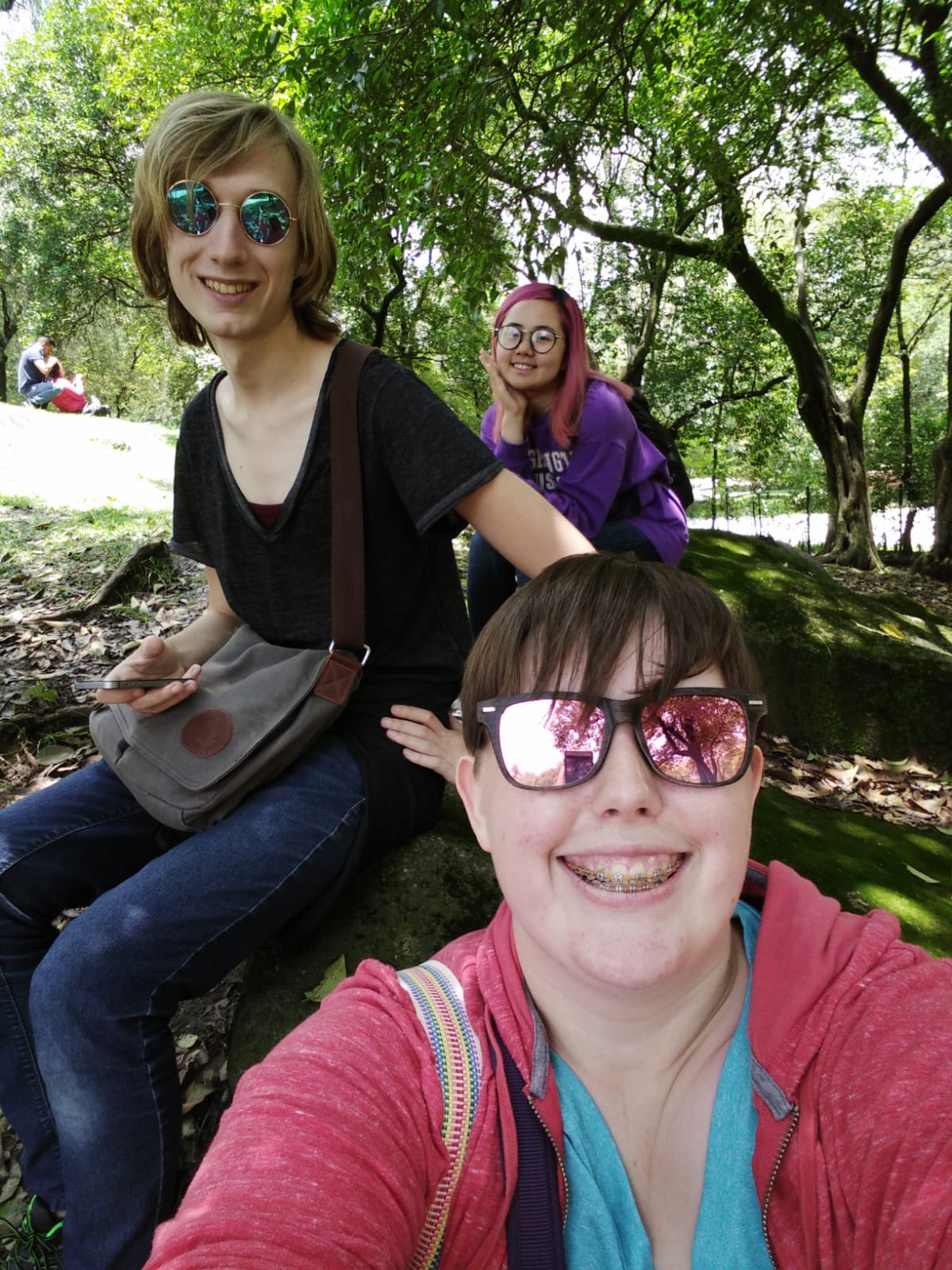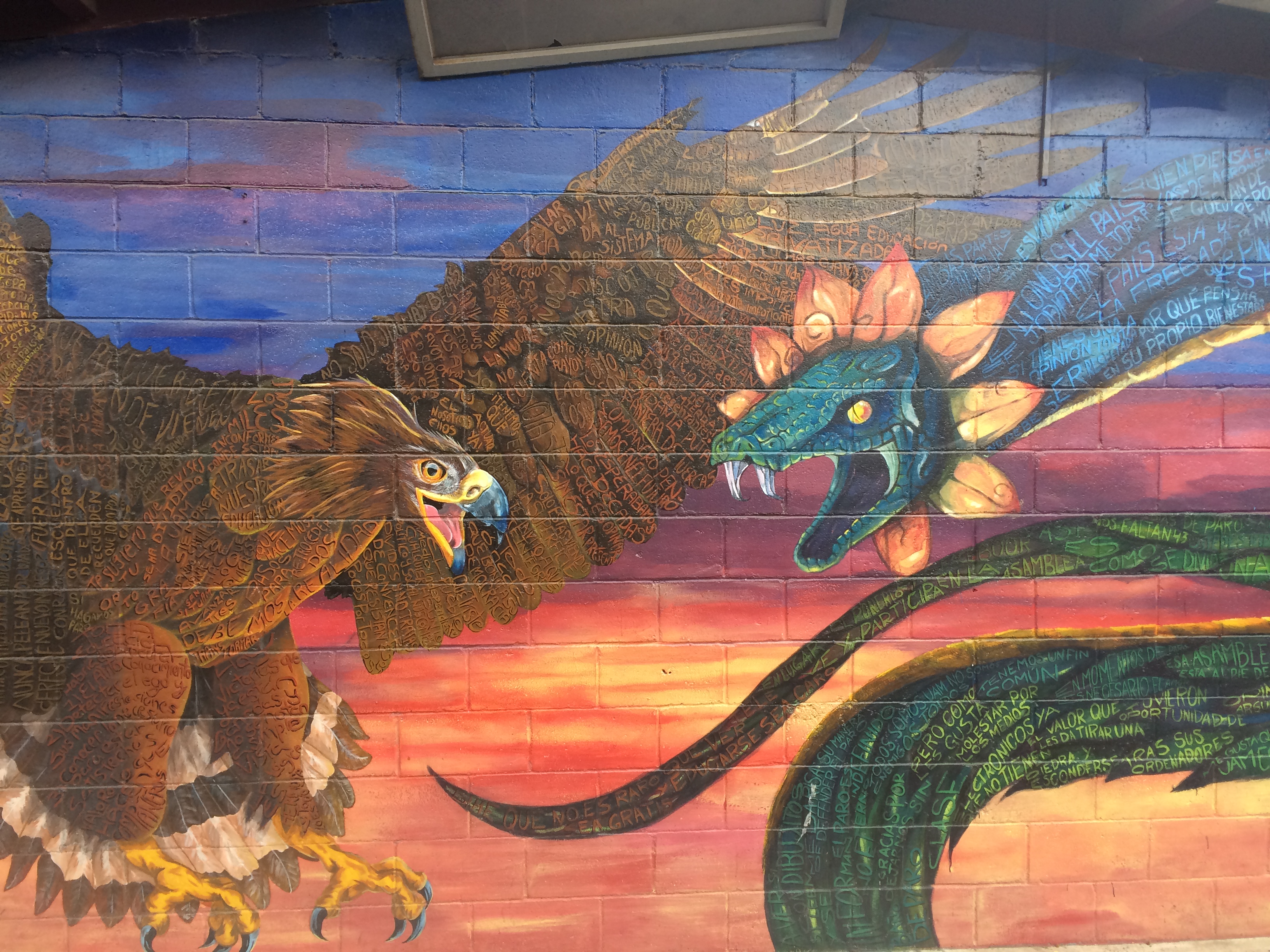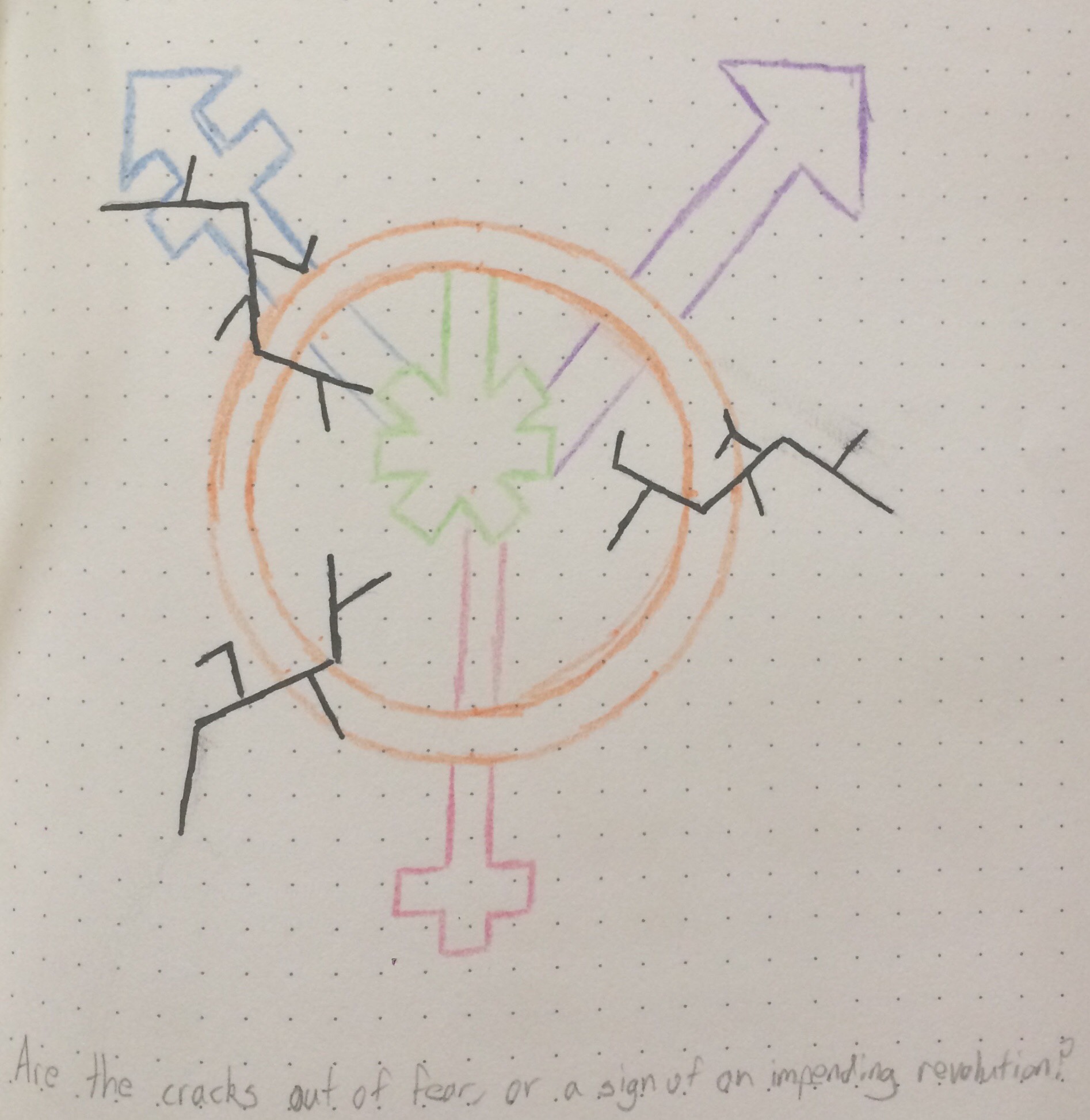How does one describe such a life changing experience. I’m sorry to bring out such an overused term when it comes to this subject arena but I have no other means to grasp the intensity nor the momentum of this past month. Everyone has a time in their life where they “come of age” so to speak. However, when you are a transgender youth, that changes into something more profound. I call this phenomenon a “coming of gender” to signify the shift in personality through my experience in La Ciudad de México. And I know I haven’t discussed this aspect of my identity much so I’ll give some context before I really get into the meat of my experience.
Over the past year, beginning in June 2017, I went through a process of coming out, predominantly to myself. In January, I finally got the confidence to reveal that process to my family after only being out to select friends. That same month I also began to shift how I dressed. Upon April 2nd, I began hormone replacement therapy to look more androgynous and I’ve been loving the results ever since. Going into this trip, I was a few months into my full blown transition which would be drastically affected by my time in Mexico. So to really begin this post, I’d like to share a video of my gratitude presentation to our teachers and mentors throughout the program.
So yeah, that was a lot. This whole program was a lot, far more than I can describe in a single post, but one can try! Themes of fear, maturity, changes in behavior, I’ve felt it all. When you spend nineteen years of your life perceiving your identity as a straight white man and shift to one of the most abused and mistreated groups of the queer community in a matter of only a few months, well, it’s a lot to take in. I suppose I’ll elaborate with one of the many experiences that inspired that poem.
Throughout this month, I’ve taken up the practice of field journaling to track my experiences. Upon a tranquil city night, I chose to walk out around eleven to write in a local plaza, just two blocks from our hostel. Back in Seattle, it was a common practice for me going on late night walks to parks and such, without issue. On this night however, things changed. I was approached by a man who found an attraction to me. He had a friend with him. I, wearing a dress and flower scarf unconsciously, chose to respond and strike a conversation not realizing intentions. Nothing horrid came, what did happen was he tried to hook up, I denied him, we both went our separate ways. Yet I walked away in fear realizing how things could have turned. Remember the poem? That line, “being called señorita in the dark streets,” was a marker of that night. I dressed masculine for the next couple days, quietly unhappy with how I was suppressing part of my identity.

Isn’t it odd how when we are internally upset, we don’t allow ourselves to show it, especially in photos?
Never in Seattle has a stranger referred to me as a woman or even addressed me as a femme person yet in Mexico, this changed dramatically. With that has come “a new sense of fear.” My identity has melted, becoming fluid and ever changing in reaction to my environment. But I now realize, it’s not that reaction that necessarily defines me. As I put in in my final field journal entry last night, “Fear is a precautionary reality, not a part of identity.”
So I won’t let that fear deter my action, rather, I’ll flip it on its head. Fear is a motivation, a driving force for me to pull up its cause by the roots. But fear comes out of more than just gender and identity. We live in a turbulent world with many, many deep rooted issues. Being trans has spawned fear that will push me to revolt against sexism and patriarchy. The concept of the Anthropocene, climate change, and a generally grim looking future has gripped my conscious as if to yell “HEY! Do not lie idle in the face of disaster!” Most of all, my fear of overwhelming guilt, my life as a United States citizen, living luxuriously off of the marginalized work of foreign countries (cocoa for chocolate out of poor farmers from West Africa, the slew of products from factories all over east Asia from phones to shoes), it’s motivated me to spend my life working to pay back my gifts to society. So I will say to you just as I said to my mentors. I don’t know how or even what I’m going to do. I’m just a privileged white college student living the rich life in Seattle, what do I even matter to those farmers in Africa who likely help make my afternoon chocolate bar? The truth is, I don’t.

What I do know is that with this privilege comes a power, a responsibility. I want to give back lest I succumb to guilt. Wait… No, guilt serves no purpose. It’s not a guilt, it’s a fear. Yet something seems almost wrong about this concept of giving back. What I’ve learned from our workshops on human rights is that you need to work horizontally with victims. To stand with them, not for them. The mere idea of giving implies this slight form of hierarchy where one has excess that they must pass down to others. No, I won’t give back. Rather, I will stand with those that suffer in the world and contribute to their recovery and well being.
Okay, let’s step back a second. Wow I sound pretentious! These are massive concepts and I am but one person saying I’m going to take it all on! This is why I don’t know where the future will take me. All I have is a direction. Out of all the human rights issues we discussed, there is but one I grew most passionate toward, migration. In my mind, I think of a future where the ocean has risen enough to sink only just a few cities, but enough to force many millions from their homes. So again, I’ll ask, what can I do? Learn. Continue my journey through academia with new clarity of intention. And through that learning, I will find my niche in society to help others. I will find that niche where I can balance self care for identity while paying my tribute to the wonderful yet ominous world we live in.

I leave you with my final journal entry before leaving back to the states. A sketch visualizing fear and gender together as one. Thank you for reading my entries thus far. They were as fun to write as the experiences they express.



